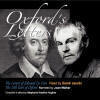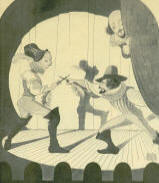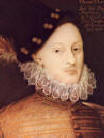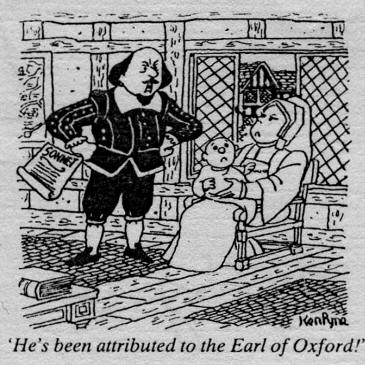

An Historical Controversy
 William Shakspere & Oxford go
Head to Head
William Shakspere & Oxford go
Head to Head
William
Shakspere of Stratford
"We are the Reasoning Race, and when we find a vague file of chipmunk tracks stringing through the dust of Stratford village, we know by our reasoning powers that Hercules has been along there. I feel that our fetish is safe for three centuries yet."
- Mark Twain, Is Shakespeare Dead? (1909)
“I need not blush to…honour this present discourse with the memory of your everlasting worthiness...whose infancy from the beginning was ever sacred to the Muses...”
- Angel Day in his dedication to Oxford of “The English Secretary” (1586)
Why is there a Shakespeare Authorship Question?
Until the modern schools of literary criticism took over, it was universally accepted that personal experience is the life-blood of fiction and an author’s works are – unavoidably – an expression of him or herself. In other words, art grows out of life as naturally as plants grow from the soil. As Samuel Butler wrote, “Every man’s work whether it be literature or music or pictures or architecture or anything else is always a portrait of himself, and the more he tries to conceal himself, the more clearly will his character appear.” If this is true, it follows that an author’s life will illuminate his works, and vice-versa.
The Shakespeare authorship question exists because not only is there no correlation or kinship between the life of William Shakespeare of Stratford and the works ascribed to him, but the two directly contradict each other. Dr. W.H. Furness, distinguished editor of the Variorum Shakespeare, wrote to Nathaniel Holmes in 1866, “I am one of the many who have never been able to bring the life of William Shakespeare and the plays of Shakespeare within planetary distance of each other. Are there any two things in the world more incongruous?” This incongruity is the crux: if the Shakespeare works do indeed belong to William of Stratford, why is there no relationship between the two?
It’s hardly surprising, then, that the biographies of Shakespeare that keep rolling off the presses fail as biographies, even if they succeed as engaging portraits of the age in general. For all they can deliver is an uprooted Shakespeare, alienated from – and unnourished by – his works. The creative core of the man is missing. Abandoning their attempts to effect a marriage between the man and his art, Shakespeare scholars have long since retreated into arcane literary theories that remove the author from the equation altogether. In so doing, they have left the field of Shakespeare studies wide open to amateurs and heretics – like you and me.
Let us make hay while the sun shines!
- Charles Beauclerk 2006
 Introduction to the Shakespeare Authorship Question
Introduction to the Shakespeare Authorship Question
A Lawyer's Perspective
By Judge Christmas Humphreys
WHO Wrote Shakespeare? For many years I have put this question to my friends and acquaintances, and the answers are usually one of four. 1) Why not Shakespeare? 2) So you too are a Baconian? 3) Does it matter, when we have the plays? 4) Well, who did?
My answers to these counter-questions are as follows: 1) Because there is very little evidence indeed that 'Shakespeare' was Shakspere of Stratford, and silence where one would expect evidence. Per contra, there is very strong evidence that others did write Shakespeare, and that William of Stratford did not. 2) I do not believe that Bacon wrote a line of the poems though he may, with others, have had a minor hand in the plays. 3) Yes, because it is offensive to scholarship, to our national dignity, and to our sense of fair play to worship the memory of a petty-minded tradesman while leaving the actual author of the Shakespeare plays and poems unhonoured and ignored. Moreover, I have found the plays of far more interest when seen again as the work of a great nobleman and one very close to the fountain-head of Elizabethan England. 4) I am satisfied, with a number of scholars of far greater knowledge than I, that although the works attributed to Shakespeare may have come from several hands, the incomparable genius responsible for the greater part of them was Edward de Vere, 17th Earl of Oxford.
My own approach to the problem is easily described. Though I spend the greater part of my working day in 'detective stories' of real life I have ever an appetite for more, especially when there is a wrong to be righted and an historic mystery to be solved. I find, for example, no reliable evidence that Richard III was responsible for the murder of the Princes in the Tower, and plenty to the effect that he did nothing of the kind. If there is an answer to the late Josephine Tey’s A Daughter of Time, on the subject, I should like to hear it.
And
who can seriously doubt that there is a Shakespeare
mystery? Nearly everything about that remarkable woman, Queen Elizabeth, is
fraught with mystery, and remarkably little is known about the interrelations
and motives of the brilliant group of men who graced her Court. Why was the
Earl of Oxford paid £1,000 a year from the Privy Purse while virtually exiled
from the Court? What was the truth of Bacon’s fall from grace, of Marlowe’s
death, of Leicester’s relations with the Queen? It is quite astonishing how
little we know about this long and remarkable reign. And the greatest mystery
of all is the identity of William Shakespeare.


The publication in 1984 of Charlton Ogburn’s 800-page The Mysterious William Shakespeare brought the question of Shakespeare’s authorship to widespread public attention. In it Ogburn subjected the Stratfordian position to rigorous critical analysis, then went on to make a convincing case for Edward de Vere, Earl of Oxford, who according to the Encyclopaedia Britannica has become “the leading candidate, next to William Shakespeare himself, for the authorship of Shakespeare’s plays.” (The subsequent debate between Ogburn and Professor Maurice Charney of Rutgers, moderated by William F. Buckley Jr., exposed the conventional view of authorship as perilously flimsy.) Ogburn’s work inspired Charles Beauclerk to set up the De Vere Society at Hertford College, Oxford, in order to stimulate debate at the university. Guest speakers included Enoch Powell and Hugh Trevor-Roper (Lord Dacre). Then in 1989 PBS in America and Yorkshire TV in Britain collaborated in producing a highly influential Frontline documentary entitled The Shakespeare Mystery, which has been aired many times since.
The traditional response from the establishment has been to ignore the dissenters or dismiss them as unscholarly, in the hope that academic authority will carry the day. Nevertheless, the pressure exerted by Oxfordians on the establishment view over the past 21 years has forced the academics out into the open. Professor Alan Nelson of Berkeley, despite his loathing for his subject, wrote a 527-page biography of the Earl of Oxford entitled Monstrous Adversary (Liverpool University Press, 2003). Although he avoided overt reference to the authorship question, the subtext of Nelson's character assassination was that Oxford was too nasty to have been Shakespeare! In 2004 Stephen Greenblatt in his much-heralded biography of Shakespeare Will in the World made a valiant attempt to “sex up” the Stratford man by forcing connections between the man and the works and presenting him as an angst-ridden crypto-Catholic. Greenblatt, a professor of humanities at Harvard, is angrily dismissive of the authorship question and thinks it should be banned from schools. In August 2005 he wrote a letter to the New York Times comparing anti-Stratfordians to holocaust-deniers. Greenblatt’s discomfort was in large part caused by the publication that same month of a biography of Edward de Vere as Shakespeare by journalist Mark Anderson entitled Shakespeare by Another Name (Gotham Books, Penguin USA). A scholarly and impeccably sourced work, Shakespeare by Another Name has sent shock waves through the academic world.
 To Read More About the State of the Debate
To Read More About the State of the Debate


Shakespeare Organizations
 The
Shakespeare Authorship Studies Conference
The
Shakespeare Authorship Studies Conference
 The Shakespearean Authorship Trust
The Shakespearean Authorship Trust
Websites

![]() The
Shakespeare Authorship Source Page
The
Shakespeare Authorship Source Page

![]() Shakespeare's
Unorthodox Biography
Shakespeare's
Unorthodox Biography
Reference Websites

![]() The
Folger Shakespeare Library
The
Folger Shakespeare Library
Shakespeare Media Coverage
 Public Broadcasting Frontline Site
on Authorship
Public Broadcasting Frontline Site
on Authorship
Recommended Reading
This Star of England by Dorothy & Charlton Ogburn
 Shakespeare Identified
by J. Thomas Looney
Shakespeare Identified
by J. Thomas Looney
The Mysterious William Shakespeare by Charlton Ogburn Jr.
The Monument by Hank Whittemore
 "Shakespeare" By Another Name
by Mark Anderson
"Shakespeare" By Another Name
by Mark Anderson
 Great
Oxford General Editor Richard Malim
Great
Oxford General Editor Richard Malim

Shakespeare's Unorthodox Biography by Diana Price

Shakespeare Revealed in Oxford's Letters by William Plumer Fowler
 Shakespeare
& the Tudor Rose
by Elisabeth Sears
Shakespeare
& the Tudor Rose
by Elisabeth Sears
Shakespeare: Who Was He? by Richard Whalen
 CD
Release: Oxford's Letters
CD
Release: Oxford's Letters
Oxford’s Letters (Absolute Audio, CDs, £11.99) is a portrait of one of the most attractive figures of the Elizabethan Renaissance. Edmund de Vere, 17th Earl of Oxford, wrote poems and madrigals as well as letters; he also published an English translation of Castiglione’s Book of the Courtier, which brought afashion for Italian urbanity to the Tudor court. There has been speculation that Oxford also wrote Shakespeare’s plays, an idea that makes Stephanie Hopkins-Hughes’ cleverly constructed collection of his writings fascinating listening.
Derek Jacobi’s precise diction is perfect for Oxford. The letters range from one
written in French when he was sent away from London because of plague at the age
of 13 to one written on his deathbed. There is also an extract from his
introduction to the Book of the Courtier, poems and beautifully sung madrigals.
Joan Walker’s calmly modern voice reading the linking narrative provides a nice
contrast to Jacobi’s elegant enunciation of Oxford’s graceful and often wickedly
teasing phrases.





